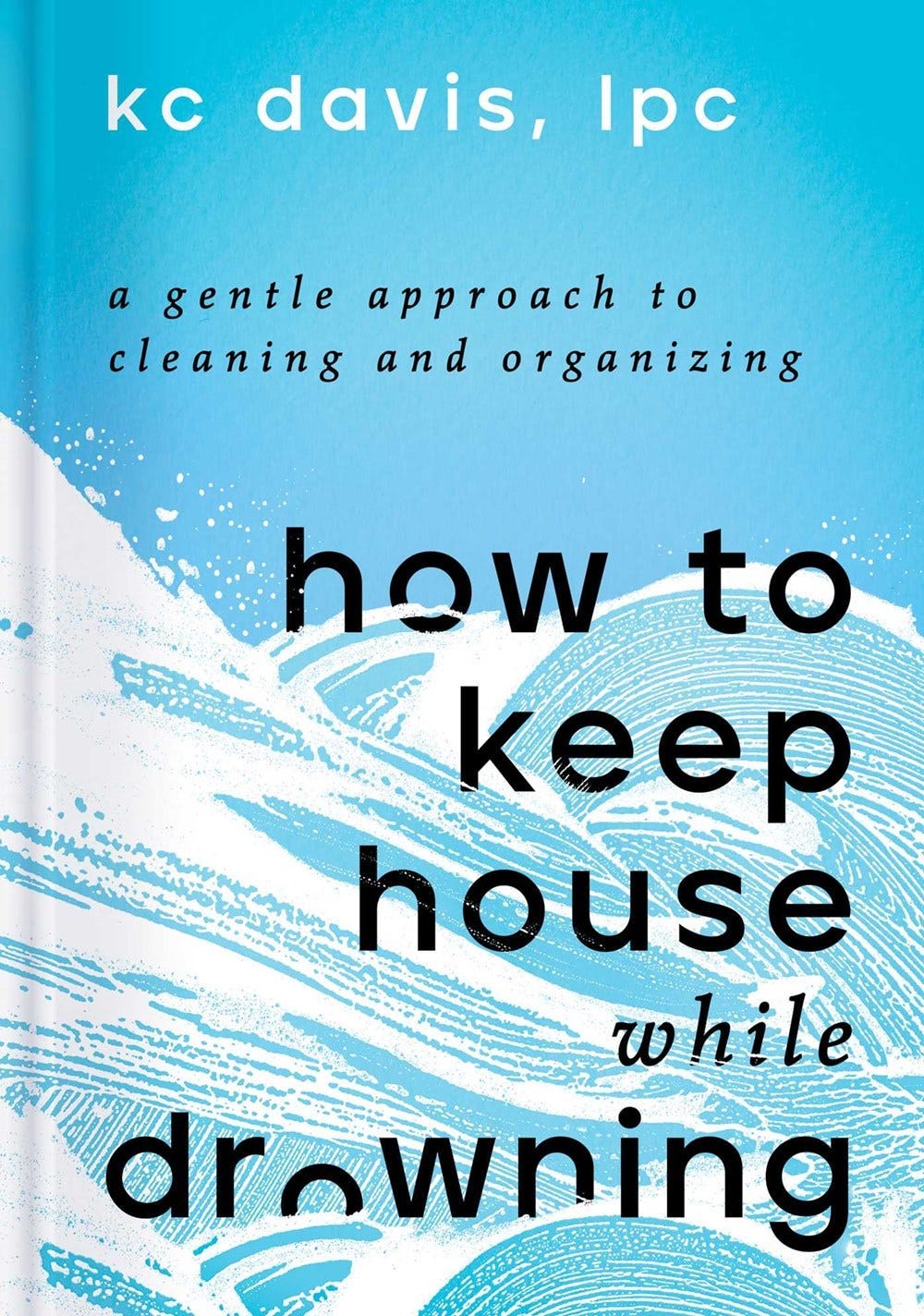This is the second entry in Culture Study’s Cleaning Week. You can find the first, on the moral valence of cleaning (and hiring or not hiring a housecleaner) here. Tomorrow, there’ll be a new essay on how we’re continuing figuring (and re-figuring) out the division of cleaning labor in my house. Friday will be a thread for ACTUAL CLEANING TIPS, because even when you spend a lot of time interrogating cleaning sometimes you just need to figure out how to clean the fan. And Sunday, we’ll have an interview with
about about the pitfalls of organization fetishization and battling over-consumption.**This series is for paid subscribers only.** The vast majority of writing here is available for free, twice a week, every week of the year. If this topic is of interest to you and you want to read and participate in what I know will be an expansive conversation about it, consider making the jump to a paid subscription.
I’d heard about How to Keep House While Drowning before, but the comments section in yesterday’s post compelled me to finally download it and read, and it’s just as good as everyone says it is. It’s directed towards people who are neurodivergent in some way, but as someone who has not (yet) been diagnosed as neurodivergent (who knows what revelations might come in follow years, I try not to be declarative about what brain is and is not) I found it comforting and compelling.
The author, KC Davis, repeatedly prompts readers to consider the priors when it comes to cleaning and cleanliness. Here’s her prompt for laundry, which she prefaces with the gentle advice that “laundry does not have to be done the way you have been always taught to do it.”




